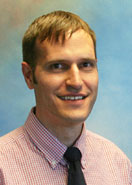Chronic Illness Management
Research overview
What do diabetes, back pain, depression, and heart disease have in common? They're among a host of chronic health problems and disabilities that have traditionally received too little attention from health care systems — until serious complications develop. Modern medicine tends to focus on detecting and treating acute problems, leaving fewer resources for the needs of patients with chronic illnesses, which may be less urgent but are equally important.
Our population is aging rapidly, and people with chronic conditions are living longer. Chronic conditions now affect more than 145 million Americans. About half of Americans over 65 — our nation’s fastest-growing segment — have at least 2 chronic conditions. As our need for improved chronic care grows, health care delivery systems are trying to correct the many deficiencies in current management of chronic diseases.
For over 2 decades, KPWHRI scientists have been developing, implementing, and promoting better models of care for chronic illness. Much of this work is led by the institute's Center for Accelerating Care Transformation (ACT Center), which is widely recognized for its refinement and dissemination of the Chronic Care Model. The ACT Center continues to work with providers nationwide to develop strategies and tools for health care systems seeking to improve chronic illness care.
Such resources are then shared globally through active engagement with international organizations developing guidance and care recommendations. Providers worldwide continue to adapt materials such as the ACT Center’s Patient Assessment of Chronic Illness Care and Patient-Centered Medical Home Assessment surveys.
Recent publications on Chronic Illness Management
O'Connor PJ, Schmittdiel JA, Pathak RD, Harris RI, Newton KM, Ohnsorg KA, Heisler M, Sterrett AT, Xu S, Dyer WT, Raebel MA, Thomas A, Schroeder EB, Desai JR, Steiner JF. Randomized trial of telephone outreach to improve medication adherence and metabolic control in adults with diabetes. Diabetes Care. 2014 Dec;37(12):3317-24. doi: 10.2337/dc14-0596. Epub 2014 Oct 14. PubMed
Swerdlow DI, Preiss D, Kuchenbaecker KB, Holmes MV, Engmann JE, Shah T, Sofat R, Stender S, Johnson PC, Scott RA, Leusink M, Verweij N, Sharp SJ, Guo Y, Giambartolomei C, Chung C, Peasey A, Amuzu A, Li K, Palmen J, Howard P, Cooper JA, Drenos F, Li YR, Lowe G, Gallacher J, Stewart MC, Tzoulaki I, Buxbaum SG, van der A DL, Forouhi NG, Onland-Moret NC, van der Schouw YT, Schnabel RB, Hubacek JA, Kubinova R, Baceviciene M, Tamosiunas A, Pajak A, Topor-Madry R, Stepaniak U, Malyutina S, Baldassarre D, Sennblad B, Tremoli E, de Faire U, Veglia F, Ford I, Jukema JW, Westendorp RG, de Borst GJ, de Jong PA, Algra A, Spiering W, der Zee AH, Klungel OH, de Boer A, Doevendans PA, Eaton CB, Robinson JG, Duggan D; DIAGRAM Consortium, MAGIC Consortium, InterAct Consortium, Kjekshus J, Downs JR, Gotto AM, Keech AC, Marchioli R, Tognoni G, Sever PS, Poulter NR, Waters DD, Pedersen TR, Amarenco P, Nakamura H, McMurray JJ, Lewsey JD, Chasman DI, Ridker PM, Maggioni AP, Tavazzi L, Ray KK, Seshasai SR, Manson JE, Price JF, Whincup PH, Morris RW, Lawlor DA, Smith GD, Ben-Shlomo Y, Schreiner PJ, Fornage M, Siscovick DS, Cushman M, Kumari M, Wareham NJ, Verschuren WM, Redline S, Patel SR, Whittaker JC, Hamsten A, Delaney JA, Dale C, Gaunt TR, Wong A, Kuh D, Hardy R, Kathiresan S, Castillo BA, van der Harst P, Brunner EJ, Tybjaerg-Hansen A, Marmot MG, Krauss RM, Tsai M, Coresh J, Hoogeveen RC, Psaty BM, Lange LA, Hakonarson H, Dudbridge F, Humphries SE, Talmud PJ, Kivimäki M, Timpson NJ, Langenberg C, Asselbergs FW, Voevoda M, Bobak M, Pikhart H, Wilson JG, Reiner AP, Keating BJ, Hingorani AD, Sattar N. HMG-coenzyme A reductase inhibition, type 2 diabetes, and bodyweight: evidence from genetic analysis and randomised trials. Lancet. 2015 Jan 24;385(9965):351-61. doi: 10.1016/S0140-6736(14)61183-1. Epub 2014 Sep 24. PubMed
Fishman LM, Groessl EJ, Sherman KJ. Serial case reporting yoga for idiopathic and degenerative scoliosis. Glob Adv Health Med. 2014 Sep;3(5):16-21. doi: 10.7453/gahmj.2013.064. PubMed
Chen R, Cheadle A, Johnson D, Duran B. US trends in receipt of appropriate diabetes clinical and self-care from 2001 to 2010 and racial/ethnic disparities in care. Diabetes Educ. 2014 Nov-Dec;40(6):756-66. doi: 10.1177/0145721714546721. Epub 2014 Aug 20. PubMed
Wang EA, Aminawung JA, Ferguson W, Trestman R, Wagner EH, Bova C. A tool for tracking and Assessing Chronic Illness Care in Prison (ACIC-P). J Correct Health Care. 2014 Oct;20(4):313-33. doi: 10.1177/1078345814541531. Epub 2014 Aug 12. PubMed
Researchers in Chronic Illness Management
 Beverly B. Green, MD, MPHSenior Investigator |
 James D. Ralston, MD, MPHSenior Investigator |
 Paula Lozano, MD, MPHSenior Investigator; Director, ACT Center |
 Gregory E. Simon, MD, MPHSenior Investigator |
 Katharine A. Bradley, MD, MPHSenior Investigator |
 Dori E. Rosenberg, PhD, MPHSenior Investigator |
 Ben Balderson, PhDSenior Collaborative Scientist |
 Joseph E. Glass, PhD, MSWSenior Investigator |
 Yu-Ru Su, PhDAssociate Biostatistics Investigator |
 Chloe Krakauer, PhDCollaborative Biostatistician |
 Mikael Anne Greenwood-Hickman, MPHSenior Collaborative Scientist |
 Laurel Hansell, MA, MPHCollaborative Scientist |
 Claire Allen, MPHManager, Collaborative Science |
 Morgan Justice, MACollaborative Scientist |
Affiliate Researchers in Chronic Illness Management
Laura-Mae Baldwin, MD, MPH
Professor, Department of Family Medicine
University of Washington
Linda LeResche, ScD
Associate Dean for Research, School of Dentistry
Professor, Oral Medicine
University of Washington










